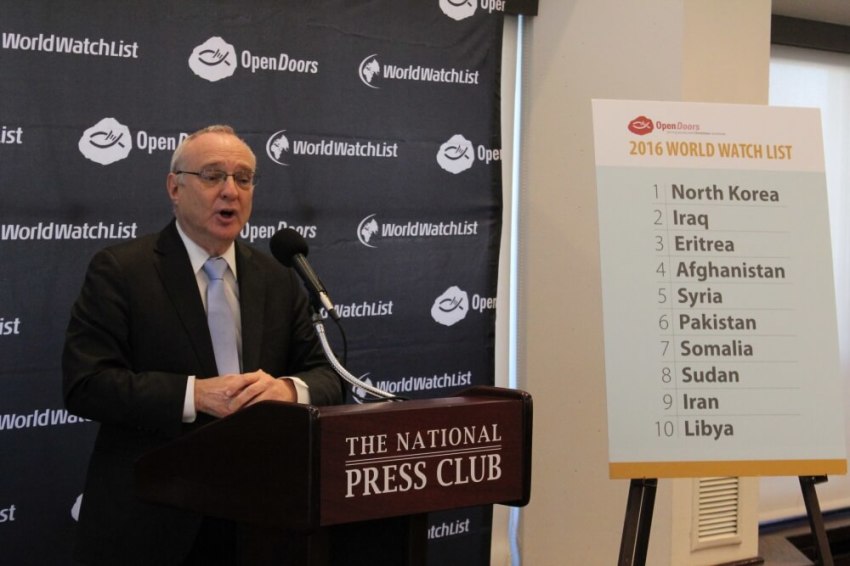74 Percent of World's Population Live in Religious Freedom Violating Country, New Report Finds

Religious freedom violation around the world is growing, with nearly 1 in 4 countries having laws directly attacking this freedom, according to a new State Department report released Tuesday.
David Saperstein, U.S. Ambassdor-at-Large for Religious Freedom, said Tuesday at a special briefing releasing the 2015 Annual Report on International Freedom in Washington, D.C. that 24 percent of nations —where 74 percent of the world's population live — have blasphemy laws or other harsh statutes on the books against religious freedom.
The Christian Post asked the Hudson Institute's Nina Shea, who has been an international human rights lawyer for over 30 years, what is driving this heightened regulatory approach to religious faith.
"There are two big factors," Shea said in a telephone interview Friday. "One is China. They are using more regulatory state to repress religious freedom instead of outright torture and long-term gulag tactics, to be seen as more acceptable in the global market place."
"Another factor is political Islam," she added, "and you have a moving away from more secular systems to religious systems, so that's very dangerous for freedom and for religious freedom, that you can't dissent within your own religion."
At the briefing releasing the report, Saperstein said that "more than one in 10 have laws or policies penalizing apostasy, and the existence of these laws has been used by governments in too many cases to intimidate [and] repress religious minorities, and governments have too often failed to take appropriate steps to prevent societal violence sparked by accusations of blasphemy and apostasy,"
"No one region, country or religion is immune to the pernicious effects of such legislation," he continued, noting that "in countries where religious minorities have long contributed to their national societies in relative comity for decades, centuries, even millennia, we continue to witness violent upheavals, some of historic proportions, in which entire communities are in danger of being driven out of their homelands based solely on their religious or ethnic identities."
Also noted in the report was the research of Roger Finke and Dane Mataic from Penn State University, who found that in the past 20 years countries that require some kind of religious registration has risen significantly.
"The percentage of countries that required submission of religious doctrine for approval prior to registration increased from 13 to 18 percent" the researchers found, and "the percentage of countries that required a minimum number of religious community members increased from 17 to 32 percent, and that the percentage of countries that sometimes denied registration increased from 22 to 27 percent."
In addition to the concerns about these governmental policies, the report further describes the role of non-state actors like terrorist groups ISIS and Boko Haram, calling them among "the most egregious abusers of religious freedom in the world." Also highlighted are the actions against Sunni Muslims and other minority sects in Iran, the persecution of Christians in China, anti-Semitic activity in Europe, and the complete nonexistence of religious freedom in North Korea.



























